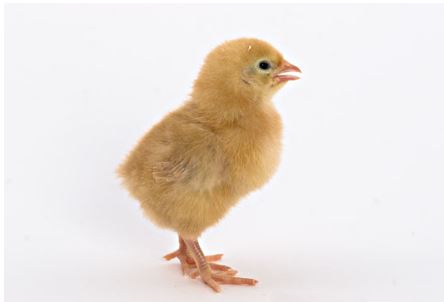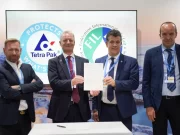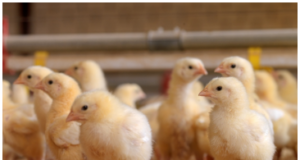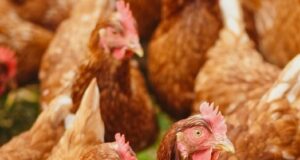
Introduction
Poultry is one of the fastest-growing sectors of the livestock industry in India. Environmental variation is one of the major factors that affect the sustainability of livestock production systems in tropical climates. Heat stress declines production performance and the death of chicken results adversely affects the return from the enterprise. Heat stress has an adverse effect on egg production, egg weight, and shell quality of laying hen. Climatic variables like temperature, humidity, and wind speed directly affect the mechanism of thermoregulation and rates of heat exchange by all animals.
Heat stress is a major factor that decreases the productivity and reproductive efficiency of livestock due to lower feed intake and negative energy balance. Temperature and relative humidity are two primary environmental factors that determine the heat stress level in livestock. Heat stress has detrimental effects on egg production, egg quality of laying hen, and reduced growth rate in broiler production. Exposure to environmental stress during the growing period of broilers results in undesirable meat quality.
Heat stress has adverse effects on the behavior, welfare, and immunity of poultry and decreases egg production resulting in massive economic losses for farmers. The management approaches to minimize the adverse effect of heat stress in poultry production viz., Provision of ventilation, the density of bird, nutritional manipulation, supplementation of minerals and electrolytes.
Controlling the environmental variation is critical to successful poultry production and welfare. An increase in temperature will lead to an increase in etiologic bacteria and parasites around the animals in the surrounding environment. Climate change influences the emergence of diseases and their transmission due to increased vectors, and pathogens.
Heat stress adversely affects
The efficiency of broiler production and meat quality. High environmental temperature lead to reduced feed intake, lower body weight, and lower feed conversion efficiency. Exposure of birds to high solar radiation is coupled with depression of chemical composition and meat quality in the broilers industry. Exposure to high temperature during the growing phase of broilers has been related to poor meat characteristics of broiler chicken and loss their quality. Moreover, exposure to heat stress during transportation of birds from production farms to processing centres has been losses meat quality.
Exposure of laying hens to climatic stress also results in a significant decrease in egg production and egg quality. Various authors reported that reducing egg production in hot weather. Due to a decrease in feed intake, reduces the uptake of available nutrients, and decreases the digestibility of different components of the diet.
So, egg production is inversely correlated with environmental temperature beyond the critical limit. Laying flock in high temperature shows disturbances in acid-base balance in the blood as a result of hyperventilation, the birds gasp there is excessive loss of co2 gas from their lungs.
Effect of heat stress on Reproduction
Heat stress has a great impact on the reproductive performance and egg quality of birds. High temperature with high relative humidity has a more detrimental effect on the reproduction of animals and leads to reproductive failure and poor egg quality.
Effect of heat stress on behavioral and physiological responses.
Under high environmental temperatures, birds change their behavioral and physiological responses to maintain their body temperature by seeking thermo regulation. Birds are subjected to heat stress conditions time spend less on feeding, more on drinking, panting, and wings elevation, moving towards cooler surfaces.
Negative effects on Health Status
Heat stress has negative effects on the health status of birds leading to changes in physiology, metabolism, hormonal and immune system high temperature results in lower levels of total circulating antibodies. Inflection of the immune response by the central nervous system (CNS), and is mediated by a complex network of nervous, endocrine, and immune systems.
Management approaches to reduce heat stress
To reduce the heat stress in poultry is the multidisciplinary approach.
Modification of the surrounding environment
The surrounding environment is controlled by using various things such as fans, foggers with fans, cooling pads, curtains, static pressure controllers, and thermostats. The provision of intermittent light had a positive effect related to lower heat production in poultry the orientation of the building, insulation, and roof overhang influence the temperature inside the poultry house.
Air movement inside the house is important for efficient ventilation. The use of sprinklers and foggers with fans reduces the temperature inside the house in hot climatic conditions environmentally controlled houses used mechanical ventilation systems and air movement is produced by fans and exhaust fans in the building.
Ventilation system
A good ventilation system is essential for heat stress management. It removes the moisture-loaded air from the poultry house and enters an equal amount of fresh air from outside. The ventilation system should be maximized as the air movement assist removal of ammonia, moisture, and carbon dioxide from the poultry house and enter fresh oxygen from outside. Proper ventilation houses can provide consistent airflow patterns. Evaporative cooling pads work on the same cooling principle as foggers.
Air is cooled inside the house when it passes through the cooling pads. Circulation fans are recommended for proper ventilation in a good ventilated house for maximizes air movement over the birds to increase convective cooling.
Bird density and nutritional management to reduce the heat stress in poultry.
Nutritional management Reduce the heat stress in poultry by nutritional management approaches. Decrease in feed intake and increase water intake of poultry under hot climate to control the body temperature. Feeding of laying hens during the evening period has been found to improve laying rate and eggshell quality through increased calcium intake.
Vitamins and mineral supplementation has been determined to decrease mortality and improve the growth performance of poultry birds during heat stress because heat stress increases the excretion of mineral from the body and decreases the serum and liver concentrations of vitamins and minerals Addition of fat and reduction of excess fat in poultry ration are recommended to minimize the adverse effect of heat stress.
The addition of fat up to 5% in the diet increases the energy value of feed constituents and decreases the rate of food passage in the GI tract and thus increasing nutrient utilization. Supplementation of minerals like ammonium chloride (NH4Cl) sodium bicarbonate (NaHCO3) , sodium chloride (NaCl), potassium chloride (KCl), and potassium sulphate (K2SO4) in the drinking water of poultry are beneficial effects under heat stress conditions.
Supplementation of vitamin C under high temperatures is most effective in reducing the mortality rates in broiler and laying hens. Vitamin C acts as an antistress and growth stimulant in commercial broiler production. Supplementation of vitamin E during heat stress is beneficial to laying hens and maintaining their biological condition.
Water intake At high temperatures, Chickens consume more water than feed. The reduced water intake is primarily behind the decrease in production. The water intake of birds increases about 7% for every 1°C increase above 21°C. Birds performance depends upon water temperature, drinker type, shape, and height of water trough under heat stress significant.
Symptoms
The signs of heat stress in poultry are panting with an open mouth, elevated wings and squatting near to the ground, droopy acting, slowness and lethargic closed eyes, lying down, increased water intake, decreased appetite, drop in egg production, reduced egg size, poor egg shell quality, reduced body weight, gasping.
Prevention & treatment
“Cool A Chick” is a unique herbal product specially made for chicks to make them cool in summer. It is a powerful coolant with probiotics and asprin extracted from willow bark fortified with vitamin C stress reliever in summer save your flock with Cool-A-Chick drops. This is a versatile product and has diversified benefits which are as follows:
Allows to combat heat stress
• Prevents dehydration
• Provides a ready source of energy
• Improve Immunity
• Enhances intestinal microflora depleted due to heat stress
• Maintains calcium-magnesium level, essential for eggshell formation
• To prevent mortality due to heat stress
• Maintain performance and production
• Prevents dehydration & panting.
Also, read…
Block the Summer Shock by Nutritional Intervention
Conclusion
It is concluded that heat stress adversely affects commercial poultry production through reduced feed intake and high mortalities. The negative effects of heat stress on broilers and laying hens, reduce growth and egg production to deteriorate egg quality. High environmental temperature increases the mortality of poultry due to inhibition of immune responses.
Feeding management practices such as changes in energy: protein ratio, wet feeding, feeding time, drinker type, and height improves performance under high environmental temperature. Influence of varying sources of dietary electrolytes on the performance of broiler reared in a high-temperature environment. “COOL A CHICK” is a very effective solution to solve this major problem in the summer season.

Dr. Shilpi Dhall
Director
Adlife Nutraceuticals



























